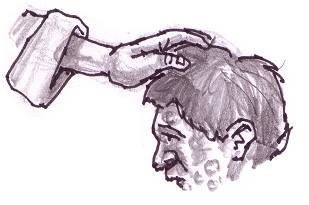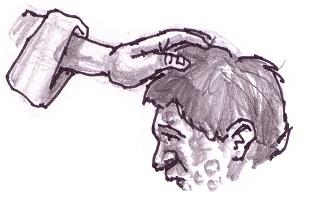

“Lord, if you wish, you can make me clean” (Luke 5:13).
1 Jn 5:5-13; Luke 5:12-16
Today’s Gospel story of the healing of the leper is rich in detail for its brevity. Luke says that the man was “full of leprosy.” He is desperate but also hesitant, prepared for rejection. “Lord, if you wish, you can make me clean.” Isolated from everyone, including his family, and assumed to be cursed by God for his sins, the leper is ready to be turned away by Jesus not just for his loathsome disease but because he is regarded as sinful and untouchable.
Jesus rushes to reassure him. “I do will it. Be made clean!” In Mark’s version, the earliest and the probable source for the other synoptics, Jesus is said to be “indignant” at the added social and spiritual suffering this man has endured on top of his physical condition. Indignation has been defined as the strongest form of love. Breaking all taboos and legal prohibitions, Jesus “stretched out his hand and touched him,” effectively rendering himself “unclean” and no doubt shocking his disciples, who would have backed away at the sight (and smell) of the diseased men moving toward them.
Jesus’ indignation is a combination of spontaneous compassion and flaring anger at a religious system that was both cruel and theologically distorted for making God the cause of suffering. We will see this same gut-churning reaction (Greek splagchnizomai) in other incidents in synagogues, where Jesus is criticized for healing on the sabbath in petty efforts to trap him as a law breaker.
After he heals the leper, perhaps with intended irony Jesus sends him to the priests, who held the power to decide if the man could be allowed back into the community by making an offering. They would get the message even as they plotted to isolate Jesus further for a having illegally touched a leper. Another word Luke uses to describe Jesus as “stretching out his hand,” makes the point that Jesus put love ahead of the law when suffering was involved.
As word spreads of the healing, Jesus is in fact forced to withdraw into deserted places, the fate of lepers, to pray and to avoid the crowds eager for more miracles. Each act of healing will involve Jesus de facto exchanging places with the victims, taking their suffering on himself.
Placed early in his Gospel, Luke is introducing Jesus to us and laying out the opposition that will increase as he continues his ministry. It offers us many points of entry into our decision to deepen our own discipleship. When have we last felt indignation at the suffering of another and how did we respond? Have we ever stretched the rules and risked our own reputations to show love in a complicated situation? What cost, if any, has our discipleship entailed.? Jesus will take our place by dying so that we might live. To follow him is to imitate this kind of love.
Advertisement








